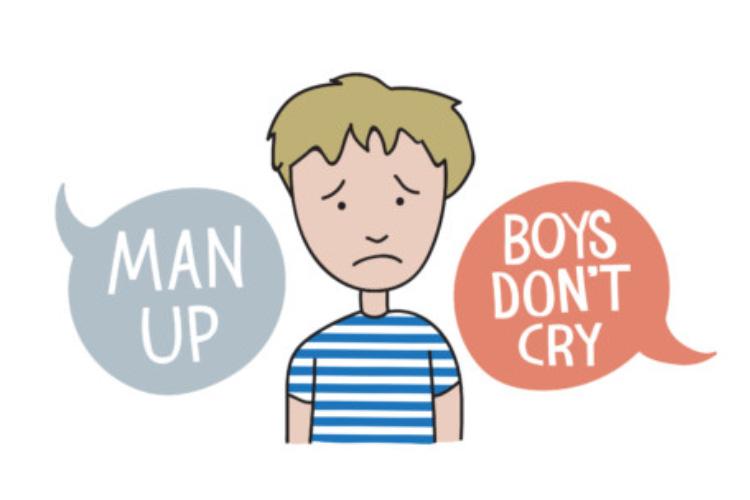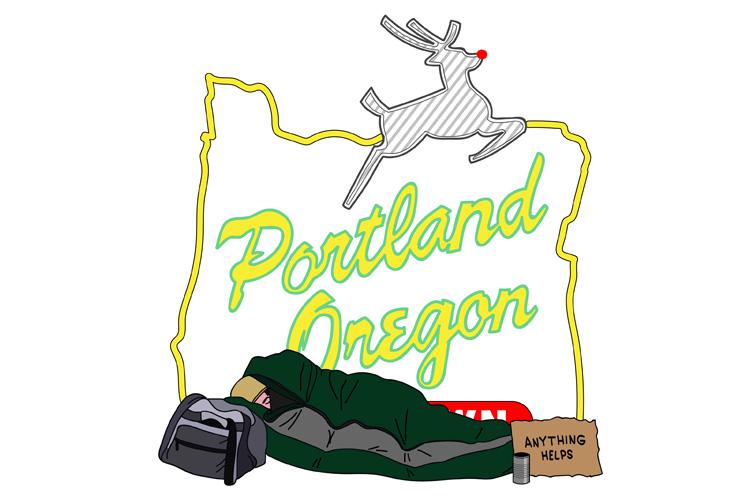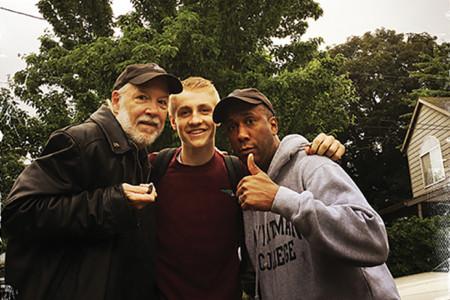It’s 1995, and then-17-year-old Mykhiel Deych isn’t in school or with family. Instead, Deych is in Canada, hitchhiking through a remote, wooded area.
Deych, sporting a shaved head and baggy clothes, has a knife attached to their belt and is accompanied by their dog, a golden retriever mix named Sontza.
It’s a lifestyle that may sound dangerous or frightening to some, but Deych welcomes the simplicity and freedom that comes with it. No electricity. No rigid structures. Just nature and a sense of discovery and freedom.
“I was a free spirit,” Deych recalls. “It was … figuring out a way to exist in society when I didn’t really believe in those values that everyone around me valued.”
Deych, now 38 and an English and Writer’s Workshop teacher at Grant High School, has never been one to conform to the norm. In fact, much of Deych’s life has been spent striving for just the opposite.
Part of that has to do with gender. Deych, who goes by M. Deych at Grant and uses they/them pronouns, has always viewed and experienced gender differently than the majority of mainstream society, long before transgender issues, were, as Deych puts it, “a thing.”
While “transgender” might be the most widely known term that Deych uses to describe their gender identity, there’s also genderqueer, androgynous and “both/neither.”
“My experience does feel like I’ve got multiplicity,” Deych says. “It’s a very multiplying feeling to be like, more than, or both, and neither and all of it at once. A lot of people think that gender is really binary. I don’t buy into that because I never fit into the binary in the way that people expected me to fit.”
Trans issues are at the forefront of American culture now, more than ever before, sparking what The National Geographic called “a gender revolution.” Grant, for example, is taking part in the revolution – when the school undergoes a remodel project, it will have all gender-neutral bathrooms.
But increased awareness hasn’t always translated to widespread acceptance. Confusion around gender identity is largely why Deych dropped out of high school to pursue an alternative path.
And being a trans teacher presents challenges that can be difficult to navigate. Grant may be steadily evolving, but, like other schools in the district, it’s oftentimes lacking an understanding of the complexities of gender.
“I think we have more work to do,” says Grant Vice Principal KD Parman, who identifies as gender non-conforming. “There’s a difference between a non-discrimination policy and being in a place where it feels uncomfortable coming to work everyday.”
For fear of losing their job, Deych had to be careful when it came to sharing parts of their identity in the school setting. But with a tenured contract coming up at the end of this year that stabilizes their employment status, Deych is beginning to feel more comfortable.
“Certainly my first year, (the school) easily could have gotten rid of me,” says Deych. “I feel much safer to be able to just fully be myself.”
Now, Deych is in their third year of teaching at Grant and uses their experiences growing up to inform their teaching. “I actually want to impact youth positively, because A: they’re the future, and B: I so seriously feel the struggle of that in life,” says Deych.
Understanding Deych’s story and struggle requires stepping outside of the binary society that we have lived in for centuries and plunging into the unknown, or more aptly put: the misunderstood.
Deych was born in December 1978 in Baku, Azerbaijan, to Valerie and Michael Deych, and was assigned female sex at birth. Deych has two brothers, Gera and Sasha, who are 9 and 17 years older respectively, and a sister, Vera, who is 13 years older.
As a Jewish family, the Deychs suffered from discriminatory laws regulated by the Soviet Union. So, when Deych was 2, the family left and moved to Wisconsin before settling in Southfield, Mich.
Growing up, the substantial age gap between Deych and their siblings coupled with Deych’s lack of connection to Azerbaijani culture created a disconnect between them and their family members.
Deych, who was known by a different name back then, remembers feeling like a boy from the beginning of their life. At first, Deych explored their gender identity by trying on their dad’s clothes when their parents were gone or running around without a shirt.
Deych kept their inner dilemma a secret. At home, the message was clear: anything LGBTQ+ related was not OK. Deych also always knew that they were attracted to girls, but they had to suppress that, too, not just because of family culture’s views, but because of where they lived.
“There weren’t even gay teachers out when I was growing up,” says Deych. “That wasn’t a norm. ”
Vera Deych remembers not knowing about her sibling’s gender identity until much later in life. “They suppressed it very well,” she says.
Later, when Deych was 10, they often pretended to be the cartoon character Mikey, a 13-year-old boy from the 1985 movie, “The Goonies.” “Because it was play, it was considered acceptable by people … and they never even thought twice about it,” Deych recalls. “But for me it was really, really, real.”
Then puberty hit, which is a time that can be difficult for anyone. For Deych, who developed a body that didn’t feel like their own, it was “damaging.” “Becoming a girl in the eyes of society – and a misogynist society – all the attention was put on that,” says Deych. “It just didn’t feel like I got to own my life. It just didn’t really feel like I was the master of my world.”
Deych did the “bare minimum” to “pass” as a girl. “I was never able to be a person that like wore makeup or like did the things that girls were supposed to do, really,” says Deych.
In the beginning of high school, Deych maintained a 4.0 GPA. But during sophomore year, Deych remembers “imploding.”
Everything – gender identity and sexuality, a cruel English teacher who targeted Deych and the general difficulties that come along with high school – compounded all at once. Most of all, says Deych, they didn’t feel like they belonged. “There was definitely some break where I stopped trusting that school was a safe place,” says Deych now.
That was when Deych began skipping classes, and soon, they rarely attended school. Deych’s parents enrolled them at an alternative school for their junior year, but it only acted as a placeholder.
Deych met a few other students at the school who weren’t happy there either. After only a month and a half at the school, Deych decided to leave with them. “I just convinced (my parents) that it would get horrible if they tried to force me,” says Deych now.
So, at 16, Deych packed a backpack with just the essentials, hopped into a friend’s car with a few other teenagers and began a new life.
The journey consisted of following Grateful Dead shows across the country. They became part of a nationwide subculture known as “Deadheads” that had formed in the 1970s. Deych, though, wasn’t a diehard fan of the Grateful Dead’s music. “It was just a gateway to being able to travel,” says Deych.
By the time they reached California, Deych grew tired of following the band and decided to separate from the group. They began hitchhiking up the West Coast into Canada. “‘I wanna go as far away as possible’ was sort of the underlying feeling,” recalls Deych.
Deych eventually made it to Haida Gwaii, a set of sparsely-populated islands off the coast of British Columbia. There, Deych picked mushrooms to make money and lived on the beach in a wigwam and later a converted school bus. Deych, who had sparse contact with family at this point, remembers spending some days writing poetry.
After a few years of traveling, Deych settled in Olympia, Wash. and turned to social activism. That included volunteering at an organization that sent books to prisoners and advocating for welfare rights.
Deych also began attending Evergreen State College. By then, Deych was still largely suppressing their sexuality and gender identity because of a lack of role models. It was at Evergreen that Deych first met a man who was a professional mariner. They later got married and had a daughter, Zorya Madrone. Two years later, they had a son, Malachi Madrone, who goes by the nickname Hobbit.

“I think there was something in my subconscious that thought that having a baby would make it all go away or something,” says Deych. “I was just like, “OK, I’m going to try doing this thing that everyone says I am. I’m gonna have kids, and that’s gonna make me a girl.”
It didn’t quite work out that way. Deych remembers that after having their first child, questions about their gender identity re-surfaced. Around the same time, awareness around transgender issues began emerging within Deych’s community. Other people they knew began changing their pronouns and coming out as trans.
“I was like, ‘Oh my god, hallelujah. This isn’t something weird,” says Deych. “It was incorporating this sense of discovery and relief and acceptance.”
From the time their kids were born, Deych also did their best to separate them from the traps of the gender binary system. Deych let Zorya and Hobbit Madrone wear their hair how they wanted, regardless of gender, and had conversations with them about the ways in which Deych experienced gender.
“Noticing how people dealt with my kids and their gender, too, was also impactful,” Deych says now. “Not just gender about me personally, but also gender as a construct. When people would be like, ‘Boy or girl?’ I’d be like, ‘It’s a baby.’”
Their husband’s job meant he could rarely stay home with the kids, so Deych was the primary caregiver. Money was tight and the family struggled to stay afloat.
Things began falling apart in 2004. Deych and their husband bought a boat to fix up and eventually live on, but the family had nowhere to live in the meantime. They were left to set up camp in the woods, living in a tent along with a tarp-covered structure for cooking meals. By fall, when temperatures dropped and the rains came, the lifestyle was no cakewalk.
Deych had had enough, and the couple separated. Deych and the children headed back to Olympia. Later, Deych received a bachelor’s degree at Evergreen.
In 2008, Deych decided to go back to school at Columbia College in Chicago in order to pursue writing at a more serious level. “Up until that point … I felt like I didn’t have a lot of choices,” says Deych. “I wanted to pursue my dreams.”
Deych was dating women and incorporating their sexuality into conversations with friends. Upon moving to Chicago, Deych decided to start going by the name Mykhiel, a version of their father’s name, and switch to they/them pronouns.
“I don’t feel like language always has to verify your experience. It’s really nice when it can,” says Deych. “But then when I started thinking about ‘they’ pronouns, that felt really right.”
Bethany Hays, a friend of Deych who first met them in Olympia, recalls noticing how Deych underwent a change. “I do really see that they have been so much happier in their life, I think, and more content since they’ve made these changes that took a lot of courage,” says Hays.
At Columbia College, Deych received a Master’s in Creative Writing while working at the school’s Queer Resource Center and teaching several freshmen classes. In 2010, Deych moved to Portland so their kids could be closer to their dad’s side of the family.
In Portland, Deych had a difficult time finding stable work. They bounced around at a few positions, such as landscaping and working as an outdoor educator for Trackers, while applying to teaching positions in the Portland area.
“It’s definitely always kind of in the back of my mind, like how people will react to me. Will I get in trouble for being myself?” – M. Deych
When nothing was sustainable, Deych decided to go back to school at Lewis & Clark College in 2013 and get a third degree, this time, for a teaching license.
The program requires participants to student-teach during the second part of the year. Deych landed at Grant. They student taught in Therese Cooper’s “Words of Warfare” classes, along with Mary Rodeback’s freshmen English and Writer’s Workshop classes.
Cooper played a part in making sure Deych was hired on as a full-time English and Writer’s Workshop teacher when their student-teaching stint ended. “They just seem to have this natural ability,” says Cooper.
Landing the job at Grant marked the first time Deych would be financially stable on their own. The new job also was when Deych decided they were ready to go through with a form of gender affirmation surgery – the removal of breasts, known as top surgery. “I couldn’t take one more day,” says Deych. “I didn’t want to start at Grant not being my full self.”
Top surgery is expensive, and Deych paid for it out of pocket. To raise money, Deych published and sold a collection of poetry and essays they had compiled over the years called “Both/Neither.” They set up a mini-restaurant in their backyard for family and friends and read from the book.
The event helped Deych reach their goal, and getting the surgery was life-changing for Deych in the best way possible. “‘Why didn’t I do this earlier? Why didn’t I get more of my life like this?’” Deych remembers thinking. “I just felt more myself than I’d ever felt before.”
Zorya Madrone, now 16, also remembers noticing a change in her mom. “I think the surgery was really important,” she says. “I just feel like it was really important to them, and it just makes sense.”
Once Deych became a teacher, they settled into the job and were asked to step in as the Queer Straight Alliance adviser after a year.
Deych had a hurdles to overcome as a teacher with a gender-neutral name. Deych remembers worrying about getting fired if a parent found out about their identity. “It’s always something to think about,” Deych says. “It’s definitely always kind of in the back of my mind, like how people will react to me. Will I get in trouble for being myself?”
They developed a go-to phrase in response to students who asked about their name: “It just suits me better.”
School Psychologist Rebecca Dorn, who identifies as queer and is a friend of Deych’s, agrees that navigating sexual or gender identity can be a challenge when working at a school.
“It’s more of a stress of secrecy,” says Dorn. “I think when you are visibly who you are, there’s a constant stress of parents making a stink.”
Regardless, students who know Deych well appreciate their presence in the school.
Freshman Hailey Collett met Deych at a Gay Straight Alliance summit in middle school and is now in Deych’s English and Writer’s Workshop classes.

“It’s one thing to have a lot of students who are trans, but it’s really cool to have a teacher who’s fluid with their gender,” says Collett, who identifies as transgender. “It really tells kids it’s OK.”
Deych hopes Grant will do more to support trans students and those who identify as LGBTQ+ in the future. Deych is working on organizing a staff training set for late February during which the QSA will meet with staff to discuss LGBTQ+ issues.
“We haven’t done a straight-up, focused, professional development time where all we’re doing is dealing with LGBTQ issues,” says Deych.
Deych also says that a mutual understanding at the staff level is key. “There are definitely some holdouts in the staff,” says Deych. “You can’t learn something from somebody that’s like, ‘I don’t see you. You’re not there.’ It’s like, forget it, now you’ve essentially made it so that that kid can’t learn.”
Deych, who is now in a new relationship, hopes to revisit their roots by someday traveling to Azerbaijan. But Deych has to be careful for their safety if they were to make the trip. There is a lack of protections on the LGBTQ+ community in the country.
“They do not like my kind over there,” says Deych, “which is sad for me. I really want to go, but it would be difficult.”
On a recent lunch period at Grant, a large number of students pack into Deych’s classroom for the weekly QSA meeting, filling every seat. There’s a round of introductions during which everyone states their name and pronouns, including Deych, before launching into a discussion that centers on recent protests against Donald Trump.
Deych helps facilitate and shares a few thoughts from time to time. As lunch comes to an end, Deych poses a question to the group: “So, how does all this affect QSA?” they ask. “Do you all feel like you want something different from QSA?”
A student sitting atop a desk pipes up: “Honestly, I’m just glad to have this space where we can come together,” the student says.
“Yeah, that’s not going away,” says Deych.
Deych’s own journey is still evolving. But now, as they finish their third year of teaching, they’ve reached a point of self-acceptance and stability. “I don’t need other people to verify or validate my gender identity anymore,” says Deych. “It’s very much a process of learning to love yourself and deciding to tell everyone else to shut the F up.” ◆





























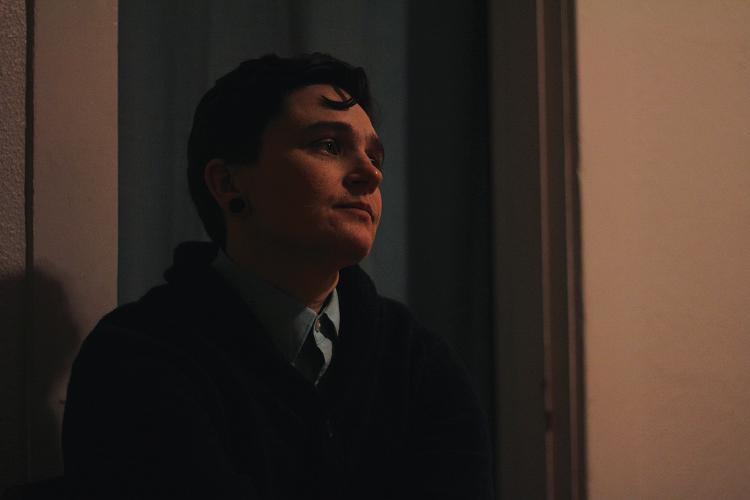
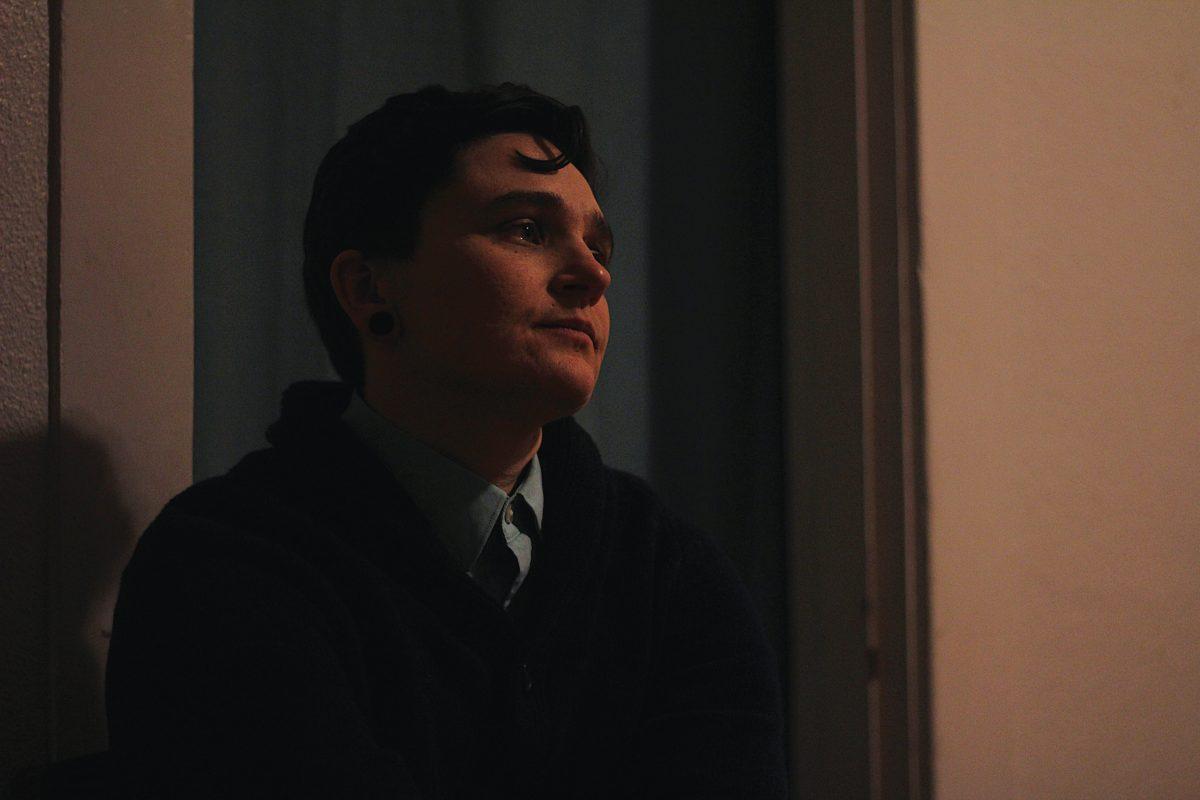
![Artita-Guerrero knows that she will always remember her mom, but as she grows older her memories become less pronounced. “It’s the smaller things I wish I could remember but can’t,” she says.“So many other thing have happened in my life that I’m kinda like covering...[her death].”](https://grantmagazine.com/wp-content/uploads/2017/02/DSC_5574-copy-copy.jpg)
